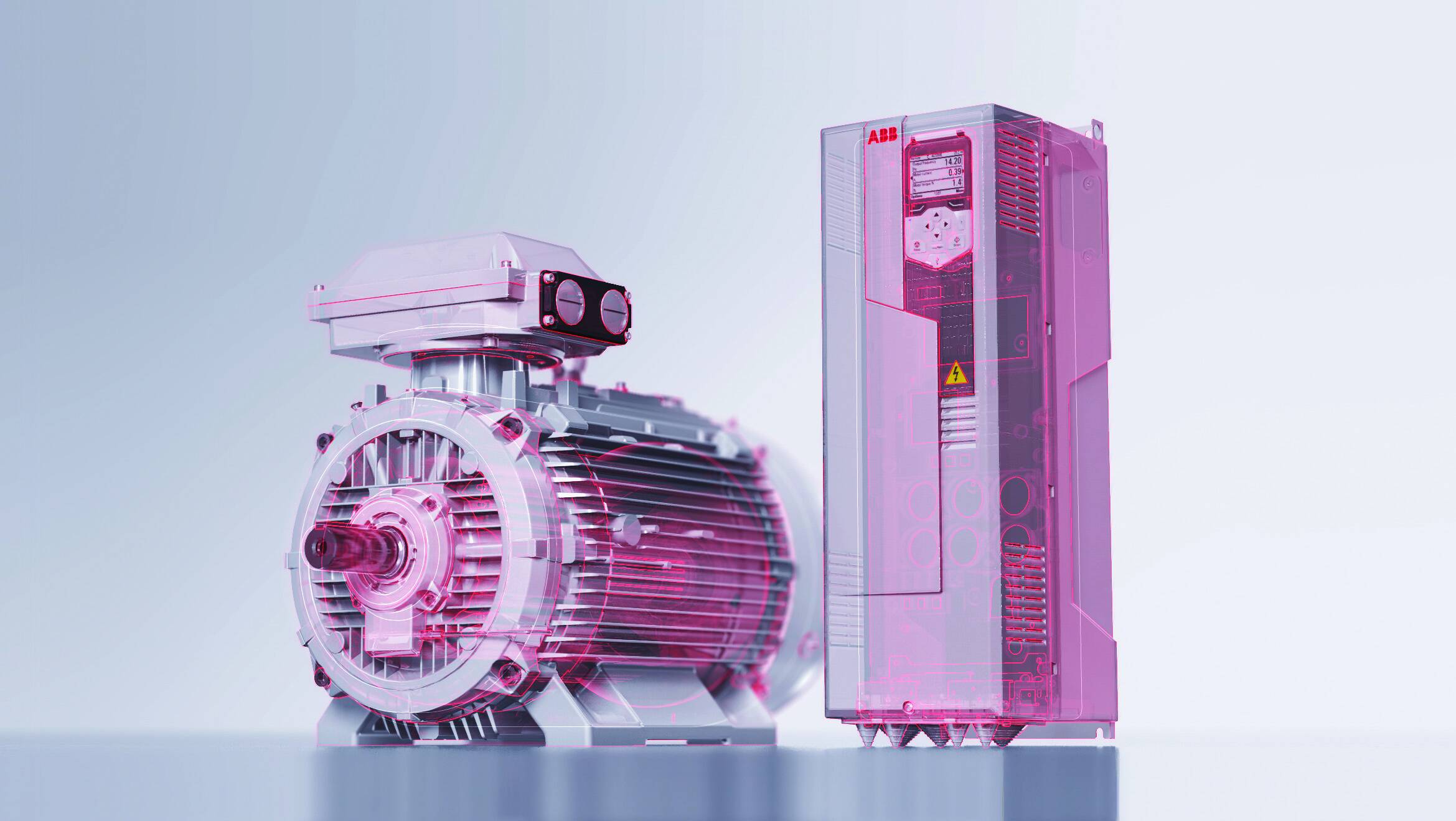You’ve reached your limit!
To continue enjoying Utility Week Innovate, brought to you in association with Utility Week Live or gain unlimited Utility Week site access choose the option that applies to you below:
Register to access Utility Week Innovate
- Get the latest insight on frontline business challenges
- Receive specialist sector newsletters to keep you informed
- Access our Utility Week Innovate content for free
- Join us in bringing collaborative innovation to life at Utility Week Live

With energy costs set to significantly increase in the coming months, now could be the ideal time to invest in efficiency upgrades, or bring forward any existing plans, according to ABB’s James Thomas, UK water industry manager, motors and generators.
The demands placed upon the UK water industry to ensure customers have a reliable supply of clean water has never been greater, caused primarily by limited supply and population growth.
 With energy costs rising at the same time, the industry is at a something of a crossroads. How will production be maintained while keeping customer bills low and ensuring carbon neutral targets will be met?
With energy costs rising at the same time, the industry is at a something of a crossroads. How will production be maintained while keeping customer bills low and ensuring carbon neutral targets will be met?
Energy costs are a major factor within industry and will always be partly responsible for the price the end user pays. In an industry regulated by a government department such as water, it is imperative that these costs are regularly monitored, and solutions implemented to negate potential future price increases.
The UK water industry has invested vast amounts of time and money into renewable energy sources and made impressive progress in attempting to meet its Net Zero carbon targets by 2030, a full 20 years ahead of government expectations.
In recent years the emergence of variable speed drives (VSDs) used to control pumps and other key equipment have also helped to make a significant dent in the water industry’s energy consumption.
As well as VSDs, motor technology has also progressed to deliver significant energy savings compared to what was possible only a few years ago.
The UK water network’s installed base of motors used to pump and treat our water supply is in large parts ageing and using considerably more energy compared to modern equivalents, and generating costs that could be avoided simply by upgrading. Indeed, a repaired IE2 motor is still at best an IE2 motor using significantly more energy than newer IE4 or IE5 products. Old motors are full of easily recyclable metals, meaning an upgrade has only a small tangible carbon footprint.
The situation with energy costs should be seen as a catalyst to improve efficiency, and in doing so, help to take significant steps along the path to Net Zero.
The easiest way to cut energy costs is simply to use less of it. Electric motors are responsible for the largest proportion of overall energy usage within the water industry, and as such represent an area where even slight improvements can make a big difference across an installed base. Energy costs can constitute a large proportion of TOTEX policy expenditure, dwarfing the initial purchase price of today’s more efficient motors. The latest generation of synchronous reluctance (SynRM) motors and VSD packages can achieve significant savings without compromising on performance and reliability. Moreover, as the price of energy gets higher, this magnifies these savings, resulting in much faster payback times (often within a matter of months) and an improved return on investment. Synchronous reluctance motors are also highly reliable and easy to maintain.

ABB first introduced its IE4 SynRM in 2011, and in 2019 launched the IE5 SynRM ultra-premium efficiency motor – the most efficient motor of its kind on the market.
ABB SynRM motors have significantly lower energy losses than comparable IE2 or IE3 induction motors. For example, SynRM motors have no losses in the rotor. This results in a lower running temperature which, together with the simple rotor design, reduces service needs and the risk of failure compared to traditional motors, helping to contribute towards operational resilience. With the addition of the ABB AbilityTM Smart Sensor, potential process disturbances and further energy savings can be detected and actions can be taken to make operations even more efficient, predictable and safe. Another additional benefit is that the noise level of SynRM motors is typically lower than traditional induction motors, resulting in a more comfortable working environment.
Upgrading your motors requires some upfront investment of course, but this will typically be overshadowed by the reduction in energy costs achieved over the lifetime of the motor.
If you have any questions about SynRM, or ABB’s wider motor and drive offering for the water industry, contact james.thomas@gb.abb.com

Please login or Register to leave a comment.